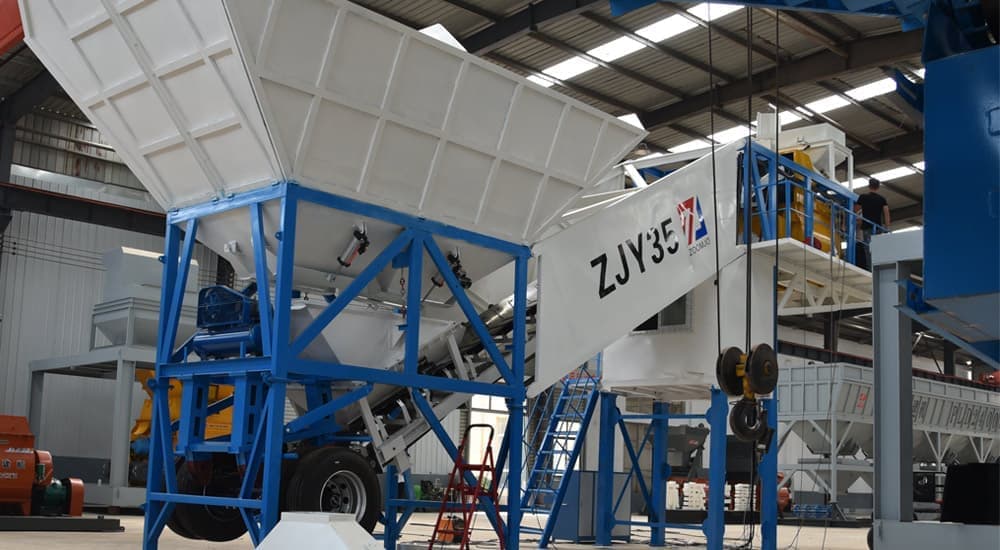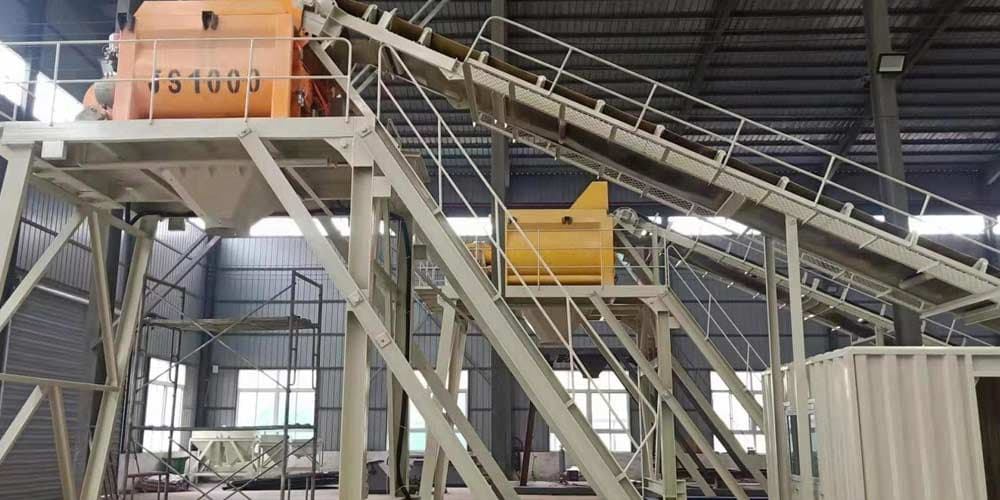Common Technical Parameters Of Mobile Concrete Mixing Plant

Mobile concrete mixing plant is a flexible and efficient equipment, which is widely used in construction sites and building sites. Its technical parameters play a key role in ensuring the normal operation and production efficiency of the plant. Some common technical parameters of mobile concrete mixing plant will be introduced below.
Production capacity: The production capacity of a mobile concrete mixing plant refers to the amount of concrete it can produce per hour. This parameter is usually expressed in cubic meters per hour (m³/h). The size of the production capacity depends on the size and design of the plant, and can generally be selected according to the specific needs of the site.

Mixing mainframe power: The mixing mainframe is the core component of a concrete mixing plant and is responsible for the homogeneous mixing of raw materials such as cement, aggregates and water. The power of the mixing machine is usually expressed in kilowatt (kW) or horsepower (HP), and the size of the power is related to the performance and efficiency of the mixing machine.
Mixing Paddle Speed: The mixing paddle is the key component in the mixing machine, which mixes and blends the concrete materials by rotation. The rotational speed of the mixing paddle has an important influence on the homogeneity and mixing effect of the concrete. It is usually expressed in revolutions per minute (rpm), and different types of mixing plants may have different requirements of mixing paddle speed.
Aggregate Bin Capacity: Mobile concrete mixing plants are usually equipped with aggregate storage warehouses for different sizes and types of aggregates. Aggregate bin capacity refers to the total capacity of these warehouses, expressed in cubic meters (m³). Larger aggregate bin capacity can improve the efficiency and reduce the number of frequent replenishment.
Cement Bin Capacity: Cement is one of the key components in concrete and mobile concrete mixing plants are usually equipped with a warehouse for storing cement. Cement silo capacity refers to the total amount of cement that can be held in this warehouse, expressed in tons (t) or cubic meters (m³). Adequate cement silo capacity can ensure continuous feeding during the production process and improve production efficiency.
Control system: Mobile concrete mixing plants are usually equipped with advanced control systems for automated production and accurate batching. The control system monitors and regulates the parameters in the mixing process to ensure the quality and stability of the concrete. The performance and functions of the control system are crucial to the operation and management of the plant.

The technical parameters of the mobile concrete mixing plant are directly related to its production capacity, mixing effect and working efficiency. When selecting and using a mixing plant, it is necessary to determine the appropriate technical parameters according to the specific site requirements and project requirements. Reasonable configuration and optimization of technical parameters can improve the productivity of the concrete mixing plant, reduce costs and ensure the quality of construction and the smooth progress of the project.
The capacity of a mobile concrete mixing plant determines the amount of concrete it can produce per hour. Smaller capacity plants are suitable for small construction projects or sites with limited space, while larger capacity plants are suitable for large projects or projects requiring large quantities of concrete.
ZOOMJO is a professional supplier of concrete mixing plant solutions. We offer concrete mixing plants with capacities ranging from 25 cubic meters per hour (m³/h) to 120 m³/h, allowing customers to choose the right capacity for their site needs. In addition to offering a standard range of capacities, ZOOMJO also supports customers' customization needs. Customers can customize the capacity and other technical parameters of the mixing plant according to their specific requirements.

 English
English  Español
Español  简体中文
简体中文  Pусский
Pусский  українська
українська 
